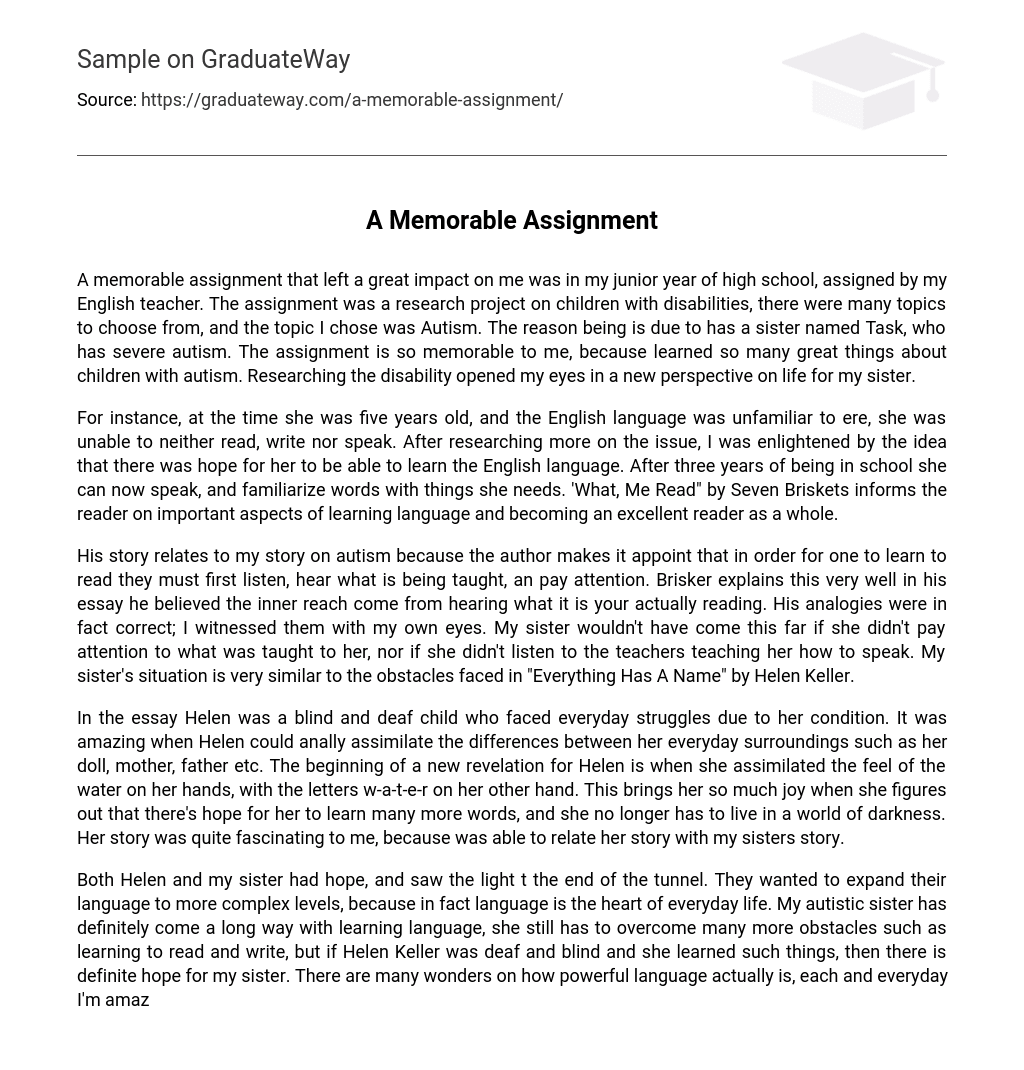In my junior year of high school, my English teacher assigned a research project that centered on children with disabilities. This assignment had a significant impact on me. With various topics to choose from, I opted to delve into Autism due to my personal connection to my sister Task, who has severe autism. This particular task carried immense significance for me as it provided valuable insights into the lives of autistic children. Through this research, I gained a fresh perspective on life by seeing things through my sister’s experiences.
Despite being unfamiliar with English and lacking skills in reading, writing, and speaking it at the age of five, there was hope that she could learn the language based on my research. After three years of attending school, she now has the ability to communicate and associate words with important objects. In “What, Me Read,” Seven Briskets provides valuable insights into the process of language acquisition and achieving proficiency in reading.
In his essay “Everything Has A Name,” the author emphasizes the significance of listening and paying attention in order to develop reading skills. This idea strongly resonates with my personal experience with autism. Brisker effectively articulates this concept, highlighting that comprehension comes from actively listening to the material being taught. I can confirm the validity of his analogies based on my own observations. Just like my sister, who faced difficulties in learning, she would not have made such progress without attentively absorbing the teachings and actively listening to her teachers during speech lessons. Thus, my sister’s journey parallels the obstacles discussed by Helen Keller in “Everything Has A Name.”
The essay depicts Helen as a blind and deaf child who faced daily struggles due to her condition. It was astonishing to witness Helen’s ability to comprehend and differentiate objects in her surroundings, such as her doll, mother, and father. One significant moment for Helen was when she correlated the sensation of water on her hands with the letters spelling out “w-a-t-e-r” on her other hand. This realization brought her immense joy as she realized that she had the potential to acquire numerous words and break free from the darkness in her world. I found Helen’s story incredibly captivating because it resonated with my own sister’s experiences.
Both Helen and my sister possessed hope and glimpsed the light at the end of the tunnel. They desired to enhance their language skills to more intricate levels, as language is undeniably the essence of daily existence. Although my autistic sister has made remarkable progress in acquiring language, she still faces numerous challenges, including learning how to read and write. Nonetheless, if Helen Keller, despite being deaf and blind, managed to accomplish these feats, there is unquestionable hope for my sister. The immense power of language never ceases to amaze me, as I discover novel knowledge and insights through it each day.





